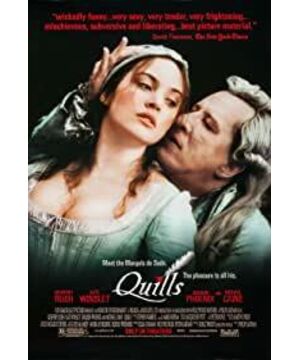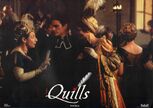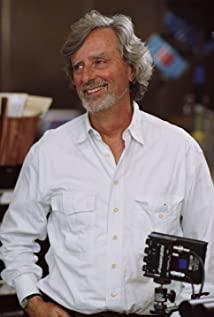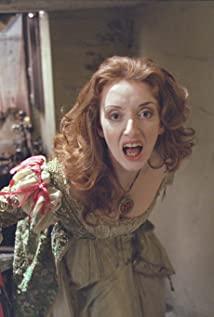In the middle of the 18th century, the Marquis de Sade in France was widely criticized. His deviant behavior was often criticized by the world. However, as a cultural phenomenon, it undoubtedly provided a specimen for future generations to examine the hegemony of rationalism.
The film "Quil" takes the French Revolution as the background, and takes Sade, who wrote erotic literature with the quill as the object, and revolves around the mental castration and physical abuse of Sade, reflecting the complexity and change of human nature, showing the relationship between human nature and Political and religious conflict.
Saddhi
In order to better appreciate the movie "The Quill", it is necessary to have a good understanding of the Marquis de Sade in history.
The Marquis de Sade was a French nobleman and author of a series of philosophical and erotic books.
He was especially known for his erotic fantasies and the social scandals he caused, and became famous as "One Hundred and Twenty Days of Sodom", which was later adapted into the film "120 Days of Sodom".
Sadd can be said to be a symbol that cannot be avoided in a modern rational society. What most people don't know is that the words "Sadism" and "Sadist" are derived from his name. .
His name implies a mixture of devil and genius, and for centuries, there have been many lawsuits over whether he dared to expose the moral hypocrisy of the society at that time, whether he was a champion of freedom and a sinner.
Marquis de Sade was born in a prominent aristocratic family in France in the mid-18th century. However, he was ill-fated, and he went in and out of various prisons in his life. He was initially involved in Vincent Castle, and was later transferred to the Bastille, where he was finally imprisoned. He spent the rest of his life in Charenton mental hospital, and spent a total of 27 years in prison.
Whether under a monarchy, a republic or an empire, he could not escape the fate of being imprisoned.
The definition given to him by the Privy Council is quite accurate:
"He was an extraordinary man. He was a nobleman. He really had noble blood flowing through him, and he never repented to God for what he had done until his breathing stopped."
Li Yinhe's remarks about Sade in the preface of the Chinese translation of "The Great Biography of Sade" are also probably accurate:
"Thade was more subversive and revolutionary than Freud, ... he was a challenge to the established sexual order."
In literature, Sade is regarded by some French scholars as a pioneer of Romanticism on the same level as Byron.
His works have influenced Baudelaire, Flaubert, Camus, etc. At the same time, his shocking theories are also one of the ideological resources of Foucault, the most outstanding French thinker in the 20th century. The worst enemy of the 20th century's burgeoning feminists, who used his writings and ideas as the analytical basis for their theories.
In the 20th century, his behaviors and theories have become a rare carrier that cannot be ignored for exploring the human spirit.
Erotic Writing: The Proclamation of Humanity
Let's go back to the movie, "Quil" is a fictional film based on the French erotic writer Sade directed by American director Philip Kaufman. The film shows the world the difficult journey of the road to the liberation of human nature. .
In the film, the "quill pen" is used as a symbol of the film throughout. The appearance is the presentation of Sade's writing tools, and the essence is the representative of the promotion of human nature.
The film is set in the French Revolution. The protagonist, Sade, was ordered to be imprisoned in an insane asylum because of a lot of explicit and obscene plots in his works, which angered Napoleon.
In the incarceration life of the mental hospital, Thad also continued to frantically write pornography.
Before the French Revolution, the famous ideological enlightenment movement took root in the hearts of the people with an irresistible trend. A large number of enlightened figures such as Rousseau and Voltaire advocated democracy, freedom, and natural human rights.
The so-called democracy includes both political democracy and cultural democracy. The cultural dimension of democracy is the liberation of desire.
Of all desires, sexual desire is the strongest.
Freud believed that sexual desire is innate and that sexual impulses must be suppressed from time to time by certain psychic abilities and resistances.
The inner sexual desire cannot be expressed, and it is discharged in the external form.
Porn is a desire, and writing is an expression of desire.
In Sade's eyes, the quill is not only a writing tool, but also an outlet for desire.
The underlying sexual consciousness is vented, and the original controlling consciousness is disturbed or completely disabled, thus turning the order upside down.
That is to say, Sade's psychology is like an upside-down psychological world, with the entire psychological structure edifice turned upside down.
Losing the shackles of his mind, he is like a wild horse and a floodgate, disregarding all religions and kingships, and letting the fire of his soul spread freely, as Sade said:
"My writing is unconscious, just like my heart is beating."
The writing tools, from the first quill to chicken bones to glass fragments to the last feces, appear to be Sade's obsession with pornography, but in fact it is his extreme resistance to violence, his obsessive pursuit of desire, and his pursuit of democracy. of allegiance.
Second, the French Revolution was like a torrential storm, with rapid changes in leaders, and most of the fanatical revolutionaries were finally sent to the guillotine.
Living in such an environment, people's minds are bound to be repressed.
With the quill as his weapon, Sade boldly wrote about sexual revelry and advocated the liberation of human nature.
Simone was a young nun at the convent who later married Dr. Crabbie, who was decades her senior.
Married Simone has been living a boring life like a caged bird, enduring uninteresting sexual abuse and imprisonment by her husband.
Accidentally, he was inspired by the phrase "A woman's charm comes from between her legs" in Sade's work, and understood the joy of sex, she no longer wanted to be at the mercy of Crabbie and seduce the home decorator, Quietly eloped with him.
In Sade's erotic literature, there is no distinction between nobles and commoners, only male and female sex organs.
The young laundress, Madeleine, and her companions were both of common origin. They all like Sade's work.
Meidelian and her companions recited Sade's works aloud and imitated the plots in the book. They obtained great joy and satisfaction in reading and imitating, and burst into bursts of laughter.
Sade's works seem to be vulgar erotic novels, which are difficult to be regarded as elegant, but their social significance lies in the enlightenment of ordinary working people.
This erotic literature has authenticity and intimacy, and this authenticity is so close to ordinary people.
To uncover the secrets of sex, to teach openly the pleasure of sex is enlightenment.
Flogging the Powerful: The Struggle of Human Nature
In Sade's works, the aristocracy is not necessarily so great, and even the object of ridicule.
He lashed out at the upper aristocracy, and his vulgar and vulgar language challenged the authority of the ruler's "monarchical authority".
The royal family was greatly humiliated, and Napoleon was furious and ordered Dr. Crabbi, who was good at cruel therapy, to deal with Sade.
The doctor was sent by the king, suggesting a combination of power and technology.
Enthusiasm for universal values such as democracy, which may have been a virtue for writers, was a great danger to politicians at the time.
The power seized from the bloody revolution, the position of the ruler is not firm. Qin Shihuang's burning of books and Confucianism, and the Qing Dynasty's Daxing Literary Prison are all manifestations of the ruler's establishment of authority.
For Napoleon, it was necessary to preserve the noble face of the royal family and maintain his own rule.
In a sense, Crabbe's career dictates how he works. Doctors represent modern technology and reason. The doctor and Thad are in conflict.
Doctors are the embodiment of technical rationality, but technology is ruthless and ruthless.
It is a rational technology and lacks humanistic feelings, but humans are advanced animals with flesh and blood. Humanized treatment methods can eliminate the drawbacks brought by technology to a certain extent.
But if the original cold technology is used by the mad doctor, the result will be worse.
Crabbi treated Thad with the concept of "governing people as if they were animals". The doctor actually knew that Thad was not sick at all. The so-called "patient" was flaunting the truth, and he had "enlightenment disease".
In this sense, the relationship between the doctor and the patient in the film is actually the relationship between the ruler and the ruled.
In the eyes of the ruler, the ruled are all sick and need treatment.
A follower and defender of power, Krabi treated Thad with the brutal treatment of machines.
He confiscated Thad's quill and stationery, and Thad wrote on the sheets with chicken bones dipped in red wine. He confiscated all of Thad's writing tools, and Thad transmitted the story by word of mouth. There is a kind of The Tao is one foot high and the devil is ten feet high, and the two sides of "good and evil" are constantly fighting fiercely.
Crabbe did everything possible to forbid Sade from all erotic writing, but in private he fell in love with a nun who was old enough to be his granddaughter.
Sade was not forced by the torture in the end. He wrote the doctor's marriage story into a novel and printed it, and also arranged a play by himself, which satirized the combination of the old couple and the young wife of Crabbe and exposed his hypocrisy.
Crabbe was busy rectifying and torturing Thad, but ignored the people around him.
After his wife eloped, Crabbe discovered that the "Lady Poems" that his wife read day and night was actually "The Dust of Joan of Arc", and the author of the novel was Sade in the madhouse.
Realizing that his wife's escape was the result of Saad's "bewitching", Crabbe became angry and angry. He locked Saad in the dungeon and was stripped naked. Without any writing tools, Saad was Written on the wall with his own feces.
At the end of the film, the priest came to the dark dungeon with a torch. He put the cross on Sade's mouth and prayed for him before his death.
But Sade grabbed the cross, held it tightly in his hand, swallowed it in his mouth, and killed himself in anger.
The cross was originally a symbol of redemption, but now it has become a weapon of murder. Sade used his life to make a final mockery of religion.
Taking the Quill: The Awakening of Humanity
In the movie "Quil", the host of the madhouse is an open-minded young priest who advocates humanized medicine.
He was generous and kind. Although he didn't like Sade's works, he always treated Sade kindly. In the days he spent with Sade, the priest had a good impression of him.
The priest is a representative of Christianity and has a kind heart. He believes that writing is a good thing, but the content should be positive and healthy and not published publicly.
However, the hospital in religion is a place to save souls, and those so-called fallen souls are regarded as aliens against the will of religion. Although Father Coleman sympathizes with Sade, it is impossible to agree with him.
At first, the priest tried to stop Crabbi's brutal treatment of Thad, and then when Thad seemed to him to be completely depraved and self-imposed, the priest joined him in rehabilitating him.
Surprisingly, it was the kind-hearted priest in front of him who finally cut off Sade's tongue, and this was not the priest's helpless act.
This is an extreme form of torture, a religious method that does not allow the disruptors of order to issue any offensive language.
The priest is a Christian believer, and Coleman pursues asceticism. He has a secret relationship with the beautiful washerwoman, Madeleine, but tries to restrain his strong love.
Meidelian is a kind-hearted and good girl. He likes the story of Marquis Sade and secretly helps Sade to spread his works out of the madhouse.
Thad wakes up Meidelian, who falls in love with the cowardly and helpless Coleman, destined to be the victim of the religious regime.
The day before she was sent out of the insane asylum, Medline plucked up the courage to run into the priest's room to confess that Coleman finally chose God after a painful struggle.
The priest kept his philosophy of loving God with all his heart and lost his lover.
Rejected, Medline continued to help the imprisoned Marquis to write. When leaving the madhouse, Medline asks Thad for one last story to remember.
On the night before she left, the laundry room where Meidelian hid. The story was narrated by Sade, passed on by word of mouth from the patients in the madhouse, and then written by Meidailian, although the artistic effect of the original work has been greatly reduced in the process of narration. , but its erotic, slutty themes are still clear and sultry.
Ultimately, one of the patients in the retelling became infected with Sade's work, aroused lust, imitated the plot of the novel and killed Medline.
Meidelian, who was eager to help Sade publish her book, did not expect that she would sacrifice her life indirectly because of Sade's works.
The death of Meidelian is another metaphor in the theme of the film. The sexual psychology of normal people has been processed and standardized, while the sexual psychology of lunatics is completely out of conscious control. It's a moth to a fire.
From this point of view, advocating the liberation of human nature must be moderate and pay attention to the object, otherwise it may lead to social unrest and greater tragedy.
Facing the death of Meidelian, the priest was unable to repent. He came to the hall where Meidailian's body was kept, and used his fantasy to complete the copulation with his lover.
When the lover died, the priest began to doubt God. The God who saved the suffering not only could not help him escape the sea of love, but also lost the person he loved.
Later, when Sade swallowed the cross symbolizing redemption and died, Coleman completely questioned God and his identity as a priest. In the painful realization, he was also "crazy".
Sade was dead, but he was victorious.
A single spark can start a prairie fire, more and more people come into contact with Sade's works, and the meaning of enlightenment begins to appear.
At the end of the film, Dr. Crabbie, who is superficial but hypocritical, actually transformed the madhouse into a printing factory, and the publication was the work of Sade, which he had worked so hard to persecute.
To a certain extent, Sade's works have been recognized by the society, and Krabi, the representative of the "ruler", has lost the opportunity to change his position. Although it is more driven by interests, it is also a kind of conformity. Public opinion is also the progress of enlightenment.
Because of the awakening of human nature, Father Coleman, who had renounced religion, was imprisoned by Crabbi in the cell of the lunatic asylum. When the new young dean accompanied Crabbi to visit him, he said to the new dean:
" If you are kind, please give me parchment and pen and ink, I have seen the face of the devil, and I will write the unfinished story. "
Coleman, who was still opposed to pornography, has now become the incarnation of Sade, and the blind mother of Maidelian, who once lamented the moral corruption of young people, has also become Maidelian's stand-in.
Like her daughter had helped Thad, she brought Coleman a clean sheet with paper, pen and ink hidden in it, a continuation of the days of Medline and Thad.
At the end of the film, "Madman" Coleman is writing those unfinished stories with a quill in his hand...
The movie "Quil" shows the conflict between the individual and human nature in pursuit of freedom and passion, and religion and politics in that era. The film has a relatively objective understanding of the traditional system, which not only affirms the significance of enlightenment, but also has a view on the society brought about by enlightenment. Reflections on the problem (eg the death of Medline).
However, the choice of the value, pleasure, meaning, and belief of life can only be released and released by giving them to passionate individuals and placing them in life and art. This is probably the message that "The Quill" hopes to convey. .
View more about Quills reviews











